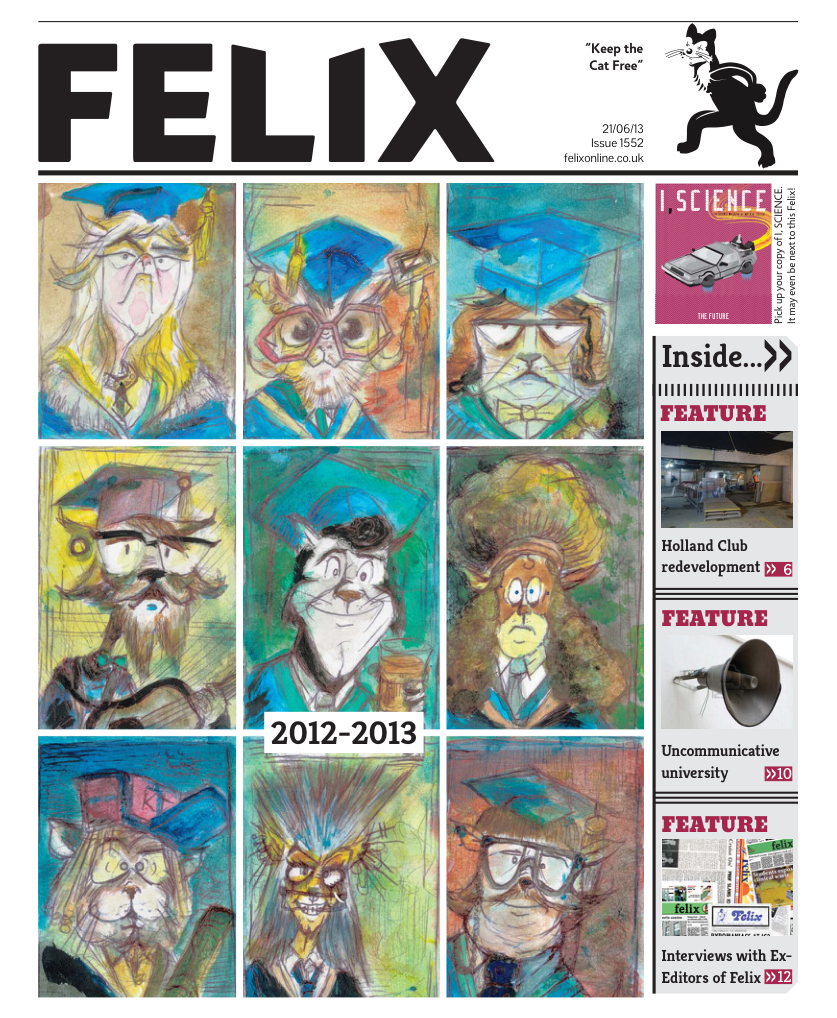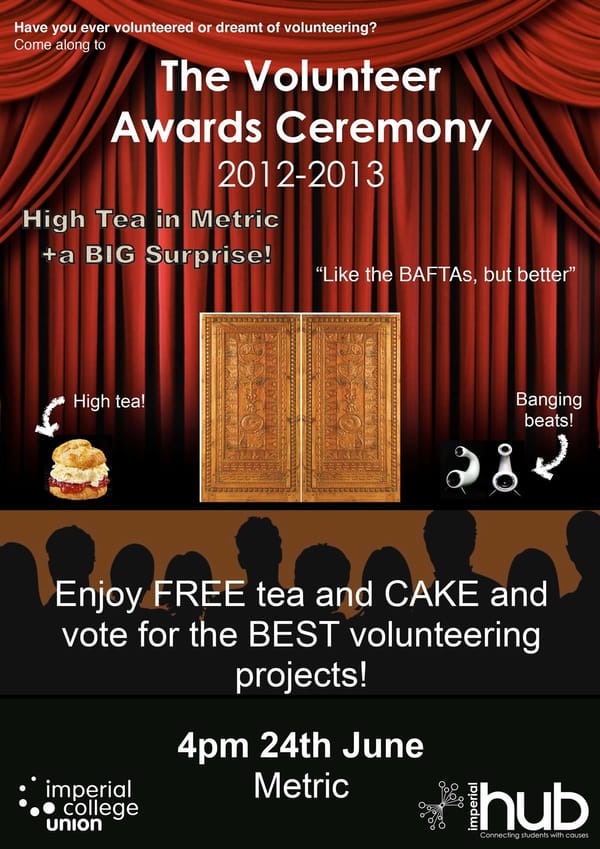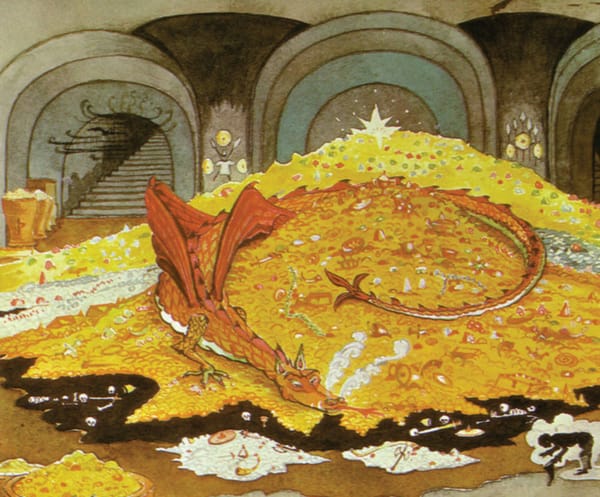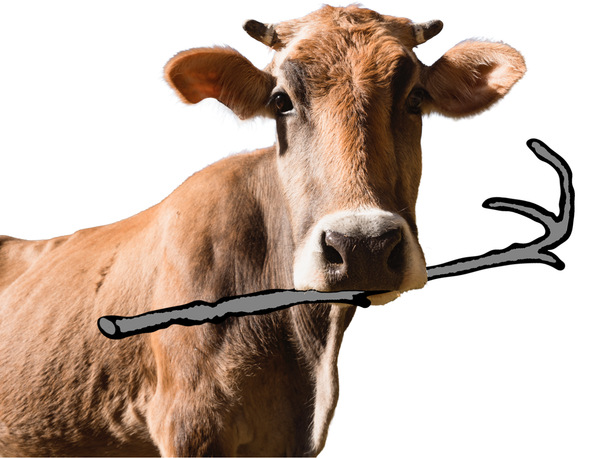Letting old cats out of their bags: Michael Llewellyn-Williams
Tim Arbabzadah interviews three Ex-Editors on their experiences editing the newspaper (Part 1 of 3)

Michael Llewellyn-Williams was Editor of Felix in the year 1974/75. He has had a fantastic life since being Felix Editor. He has travelled the world, “made a tonne of money” on the dot com wave, helped create Archie the Scotch Skeleton, worked with everyone from Carling Black Label to NatWest to Visa and BMW, written a book, and has had his own company since 1998. He currently lives in the San Francisco Bay Area, so I had a conversation on Skype with him.
TA: How did you get involved in Felix?
MLW: I was Chemistry Dep Rep, so I got involved in the Union that way. In my third year I was a floor rep on Council. I made a fuss about internal communication or lack of it. That led me to stand for position of Editor. One guy called Charlie Wrigley who was a Guildsman opposed me; and interestingly he withdrew the night before the elections. So I got elected with no one standing against me.
TA: Why did you run for Editor?
MLW: Well there was something about it. I was interested in writing, I was interested in working with creativity and deadlines. That found expression later in my career when after my PhD I went straight into advertising. Which was again working with creative people and working against deadlines.
TA: As the Editor of Felix were you then interested in the design aspect as well as the writing?
MLW: I was always interested in the design aspect. I was just never very good at it. I was more interested in writing. I had kind of a feel for how I wanted the pages laid out and the different permutations, but in terms of actually creating art from a blank sheet of paper it was one of those things I would love to do but I just wasn’t very good at it.
TA: Looking through it I think it looks quite nice!
MLW: Thanks. Understand that in my year it was a big change. Previously the Editor got all his copy together, did a rough layout, then sent it all to a printer in Dursley in Gloucestershire. They fitted the copy to the space that was there. Then the stuff got delivered. It really was just writing and editing in those days, not production.
Then in 1974 suddenly the Editor had to not only do the writing and the editing and put it all together, but he had to physically lay out, print, fold, collate and distribute the whole affair as well. That was a huge change. I don’t know if you saw the year before mine. It was a much bigger format and it was professionally printed. Mine was the first year where we were printing it ourselves. We had a professional printer guy called Kyrle Gillespie. He ran the machine and we had a lady called Gill who did the typesetting. But even the typesetting was mechanical, so she had to type everything twice: once to get the measure of the column width; and then type it again so it became justified – fitting evenly to the column width. So it was very time consuming and the problems we had with just the printer were a nightmare. We had to just get on and make the best of it.
I’m pretty sure I wouldn’t be where I am now if it hadn’t been the time I’d spent at Felix.
TA: Yeah I saw you said how it was the first time you changed to in-house production. Now we’ve switched back. We do the design and send it off to printers up in Cambridge.
MLW: Well I can say I’m very envious.
TA: Yeah, we have a luxury. We do it on a screen and the next day it’s delivered.
MLW: That’s fantastic. It was all glue and scissors for us.
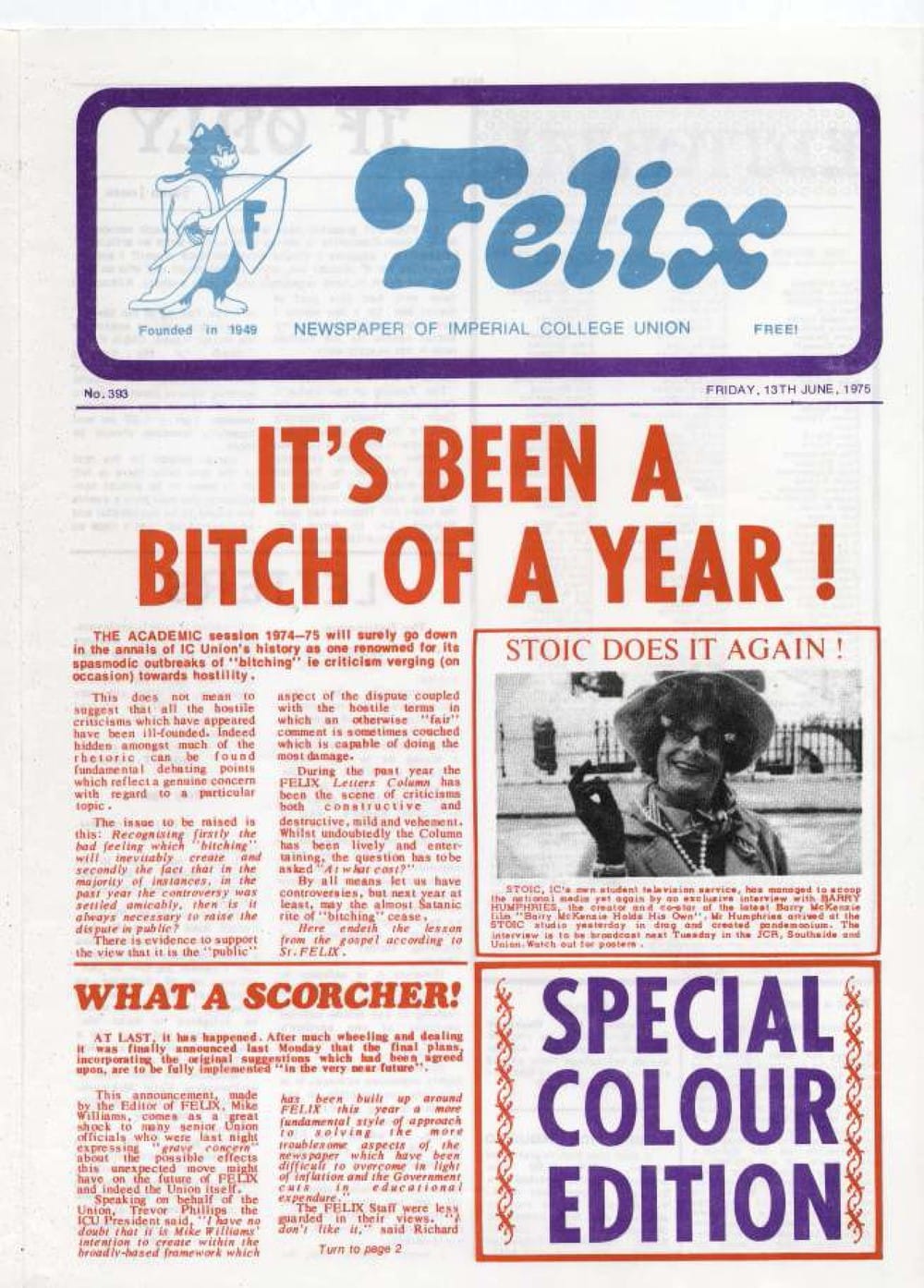
TA: Any standout moments and achievements from your year that you’re really proud of?
MLW: I guess several things. When I first came into the office there was this cupboard with lots of old issues of Felix lying around. I thought who the heck is taking care of all these? And there was no rhyme or reason as to why they were there. So I decided to create a library of all the past issues and it was then I decided we needed to get these things preserved. I even had to go to the College Archivist. And finally put together a complete thing, and I had it bound in the black buckram with the gold lettering. So that actually started in my year. It also started a tradition where people working on the newspaper collected their own issues for that year and had them bound in black buckram as well. I’ve still got my own copy and three or four copies for the years after that as I was still there until 1978. Also during my year it was the 25th anniversary of the newspaper. So we had a big 25th anniversary dinner. I remember Hargreaves who was the second Editor came over from Holland. He spoke at the dinner but he didn’t really know what he was doing - I think he’d had too much sherry. He was floundering a bit. I had to help him out and that was kind of fun.
It was also during that time that one of the past Editors wrote back that he couldn’t attend the anniversary dinner – I think he was in South Africa. In his letter he talked about keeping Felix free, as it used to have a cover price of six (old) pence. They had fought for it to be free to students so it got subsidised by the Union. Anyway, this past Editor signed off his letter with “Keep the cat free”. It was something that stuck with us. At that point it was about the cover price. And that’s where the motto came from.
The other things were instead of just reporting the news, we tried to create some news. I don’t know if the Felix Motor Rally is something you still have but we started that. That was enormous fun. We also had a Felix photo competition, which was fun too. The other thing we decided to do was to create a club. So we created the Felix Club. And somehow mixed in with that was creation of the Felix coat of arms.
TA: One that is now relevant. Don’t know how it was then. With the internet now, Twitter etc. Every year there is something that explodes a lot. How about complaints, did you get many?
MLW: Oh God yes. One of the guys who was working for me; he actually became Editor a few years later. He was a bit of an opportunist. An assistant editor but wanted to do his own thing instead of being part of a team. A pain in the neck really. There was some reason I had to let him go. Hoped he did well as he was helping setting up IC Radio, but he just went off the deep end, big time. He wasn’t a happy bunny. He wrote these vitriolic letters every week, which we all sat around and laughed at in the Union Bar. He was a one-man hate mail machine. It got very silly (laughs). Just went on and on and on.
The other thing was we were getting criticised for not having enough news content in the newspaper. This was particularly in the first term. As the printing production was such a nightmare. There were several times when we didn’t think we could get the newspaper out.
The big production night was Thursday. One of those Thursday nights I remember it being 2am and the printing machine had broken down. The printer was saying “it’s the spring, it’s broken, and we can’t find another spring at this time of night.” I was despondent and looking at my desk, and it had an angle-poise lamp on it. They operate with springs. So I said, “Hold on a minute, what about this spring here?” He said, “Let’s have a look” and then we fitted this spring from the angle-poise lamp into the printing machine and it worked. So finally we were able to finish printing and at 5am we were delivering newspapers at the different drop off points around the college.
TA: Same hours now, just in a slightly different way. In front of a computer not a printing press! Did your year as Editor prepare you for your future career at all?
MLW: I think it did have an impact on what I subsequently did. I recall at the end of my 3rd year in chemistry, I had three choices: either doing Felix as the Editor; accepting one of the jobs I’d been offered in marketing departments in various companies; or doing a PhD in polymer physical chemistry. I remember thinking “Which one should I do?” In the end I said why not do all three? So that’s how it worked out.
After Felix and the PhD, I then looked at advertising as a career as I thought it might be fun and I might be able to hook up with nice looking girls, which, er, I did – a lot. One ad agency was called BMP. They were trying to bring some science to advertising. So I remember contacting them and I guess I was lucky. They had something like 3500 applicants and only hired 3 people. I was fortunate enough to be one of those. The rest they say is history.
I do freelance work for various clients now. Huge project I’m working on right now is going to launch next year. It’s so confidential I can’t even tell me wife!
I don’t think I’d have done any of that had I not had the experience of Felix. It gave me some real life experience working with mad, creative people. Working to deadlines because (to paraphrase Dr Johnson): “Nothing concentrates the mind quite like a hanging”.
I’m pretty sure I wouldn’t be where I am now if it hadn’t been the time I’d spent at Felix.
TA: A quick word about what you do now and what BrandMechanics is?
MLW: What I do these days is mostly focused on brand strategy and working with clients mostly in the U.S. and sometimes in Europe and Asia. Three years ago, I was doing a brand essence workshop in China and half the participants had to have translators from Mandarin into English and back again – great fun! Basically I help companies, big and small, to define how they want to be perceived in the future, and then turning that into reality.
I’ve found over the years that I’ve developed a good balance between left- and right-brain thinking, between analytical and creative thought processes. And you know I think my time at Imperial was very helpful in both those areas: the science itself and the creative craziness of editing Felix!
TA: Thank you so much for giving up so much of your time!
MLW: Check out my website when you get a moment: www.brandmechanics.com


